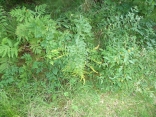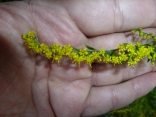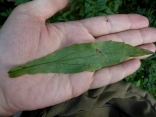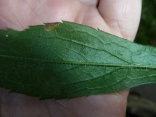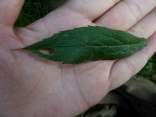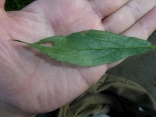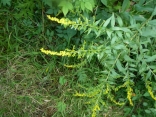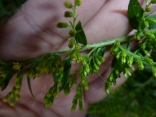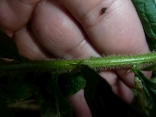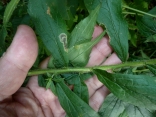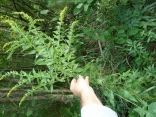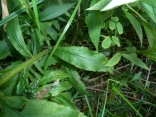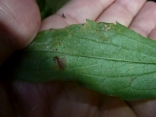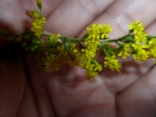- Canada Goldenrod (Solidago canadensis)
- Giant Goldenrod (Smooth Goldenrod) (Solidago gigantea)
- Tall Goldenrod (Solidago altissima also known as Solidago canadensis var. scabra)
Giant Goldenrod has a smooth, hairless, glaucous (whitish, waxy coating) stem. Leaves are hairless except for the three main veins on the underside of the leaf. Tall Goldenrod is classified as one of the variations of Canada Goldenrod. Var. canadensis and Var. salebrosa are sparsely hairly on the upper half of the stem and the lower half is mostly hairless. Var. gilvocanescens has leaves that are spreading hairly on the upper and lower surfaces and the leaves are 3.5 to 7 cm long. Var. scabra and Var. hargeri have leaves over 7 cm long, stems are very hairy throughout and upper surface of leaves merely rough to the touch, but not very hairy. Var. scabra has larger and fewer disk flowers than Var. hargeri. Flower rays average 13, leaves are firm and shallowly-toothed or entire (untoothed). Var. hageri has thin leaves that are sharply toothed and sometimes entire.
